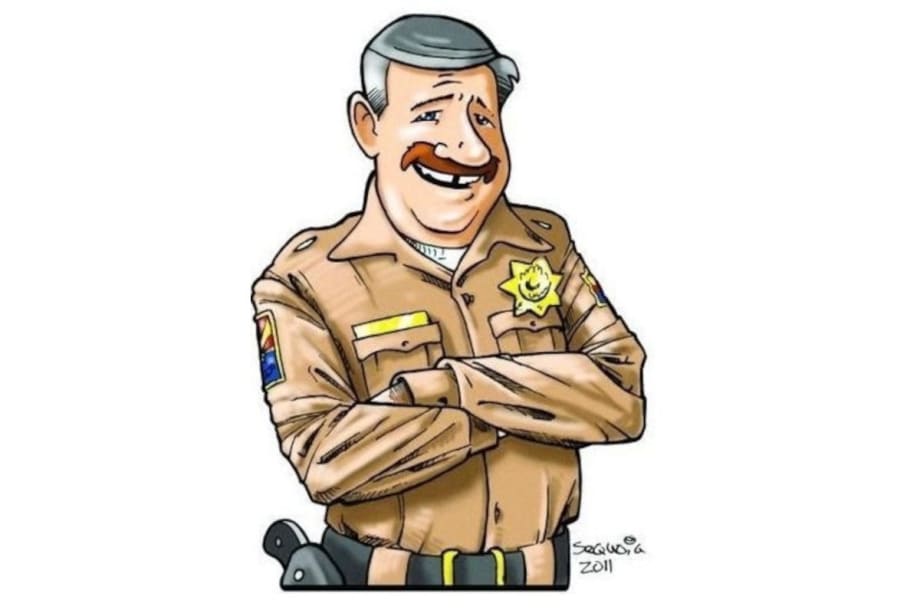Well, new FBI numbers are in for officers assaulted in 2020 and, to no one’s surprise, it shows 60,000 assaults. That’s up more than 4,000 over 2019.
Sadly, we don’t really grasp the severity of the situation until we break down the assaults more effectively to better understand how deadly the environment has become. This year the types of assaults known as “ambushes” are up 103% over last year as I write this, and chances are things are not getting better in the near future. I watch the body camera, security camera, and witness camera footage and I thank God that training today is so much better than it was in the good old days of revolvers and wooden batons.
The spontaneous nature of an ambush makes it doubly important that you review the skills and tactics that give you the edge in a confrontation when the bad guy chooses the time and place. Modern firearms, body armor, improved tactics, and better training have given today’s lone officer a fighting chance in these deadly situations, but we need to go back to the basics to ensure each of you is the best you can be in whatever critical incident you might encounter.
My favorite book on applied sports psychology is appropriately titled “Applied Sports Psychology,” edited by University of Arizona’s own, Jean M. Williams. Now in its eighth edition, this is still the standard for trainers who want to expand their ability to improve the performance of their people, from police to firefighters to Little League baseball players.
There is little difference between competing in a high-level game and dealing with a critical incident, except of course in the nature of what happens if you fail. Performing a skill under pronounced stress has been studied at great length in order to help soccer players, football players, gymnasts, and swimmers succeed under the demands of competition, setback, and injury; this method is readily applied to crime fighters in high-risk situations as well. Fear, anxiety, doubt, panic, and fatigue all adversely affect our performance, and it is the personal responsibility of each and every one of us to prepare ourselves for the trial.
Sitting around waiting for the training division to prepare you is the first step toward failure. Putting your future in your own hands is the first and greatest step toward overcoming adversity. You must become your own best trainer. And if you train others then train them to train themselves and not need you anymore. The most important step toward this competency is learning to be aware.
We all love to talk about “situational awareness,” an essential component of officer safety, but we need to expand our understanding of awareness to include ourselves, our mindset, our breathing, and our anxiety. Tactical breathing, the controlled in and out breath that regulates our anxiety and arousal, is only effective when we do it. An awareness of just how you are breathing under duress should help you control it. Don’t hold your breath. Breathe. Breathe like a bellows. Deep slow breaths.
The same holds true for your anxiety. Having trouble concentrating? Think and focus. Fumbling with your equipment? Think and remember your basics.” Your self-talk should be, “I can do this; this is what I have been preparing for!”
Hopefully this has all of you thinking about doing your skill repetitions, and that is important, but we need to also train the mind and the body, literally tune ourselves to fulfill our intentions. The skills we depend on to keep ourselves and others alive must be done to a level that motor scientists call “autonomous.” This is defined as an automatic, highly proficient performance, completely directed to the environment and decision making. In other words, instantly responding to whatever threat is presented and recognizing what to do as quickly as possible. And, besides just doing your repetitions, do them in the context you will need them.
Here is the key thing I want you crime fighters to take away from this article.
Mentally rehearse being ambushed, assaulted, wounded, and fighting back relentlessly and effectively. And always, always, see yourself win.
I don’t care if you call this, “crisis rehearsal,” “vvisualization,” or “mental practice.” It works, and the more you fear something the more you need to practice for it and prepare to overcome it.
The same principles that would help your kid be a better ballplayer can keep you alive. I have been teaching this skill since the mid-’70s to kids, and since 1980 to cadets. The simple truth is, I have seen firsthand the success of doing these basic exercises. Take control of your future in these uncertain and dangerous times. Enhance your ability to monitor the environment and yourself, believe in your mission, do your repetitions both physical and mental, and as I said, always see yourself win.
Dave Smith is an internationally recognized law enforcement trainer and is the creator of “JD Buck Savage.” You can follow Buck on Twitter at @thebucksavage.













